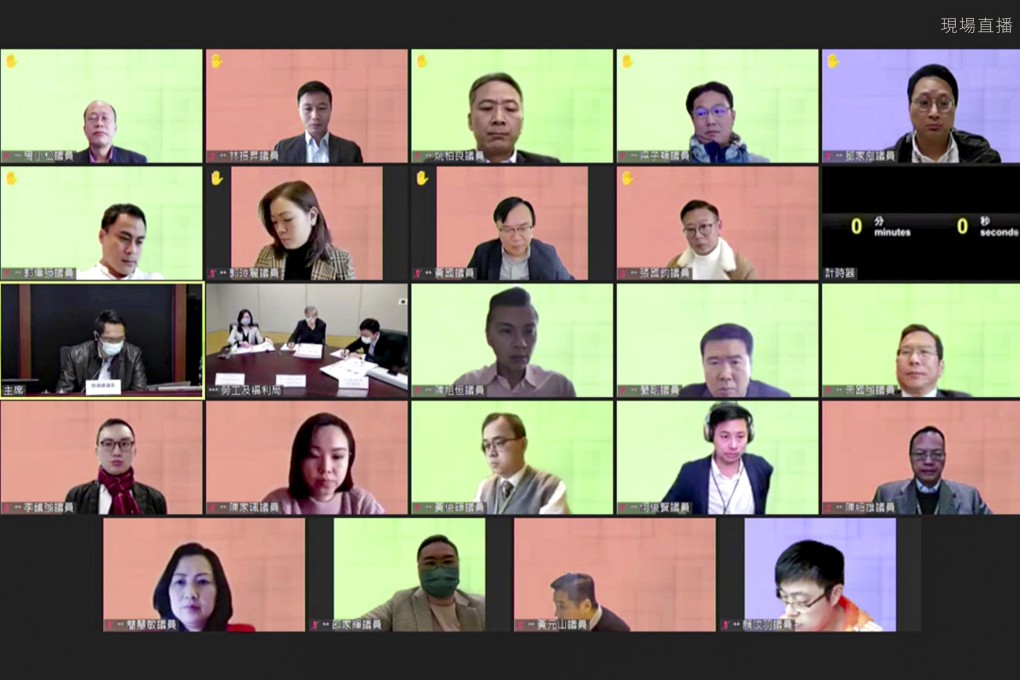Opinion | In a sea of patriots, the Legislative Council’s new lawmakers struggle to stand out
- With no meaningful opposition, Hong Kong’s new Legco members were always going to have a tough time carving out an identity
- Now, faced with a paralysed administration, deep public mistrust, and an increasingly concerned Beijing, can they ever be more than talking heads on a Zoom screen?

Conducted over Zoom, with a uniform virtual background, it illustrated perfectly the collective challenge faced by members of the new and improved 90-member legislature: being lost in the shuffle in this new political matrix.
It was intriguing to watch as questions were put to Lam by one legislator after another. They really did seem to morph into one.
Hong Kong’s evolving political ecology has made life hard for lawmakers. The pandemic has exacerbated the problem but even without Covid-19, it would be hard for members to “make their mark”.
For a chamber made up of political novices, this is especially inhibiting. There is no political nemesis to fight, so figuring out how to avoid being perceived as a talking head in a sea of 90 talking heads will be a challenge.
But it’s still early on in their term so hopefully, with time, they will find their breakout roles and develop their lawmaker personas. Some have shown promising signs.
